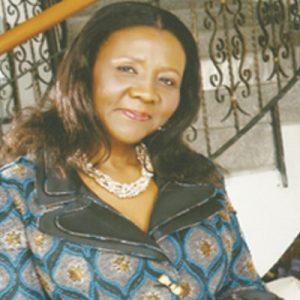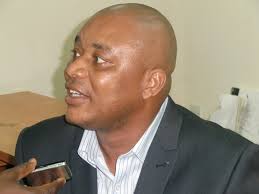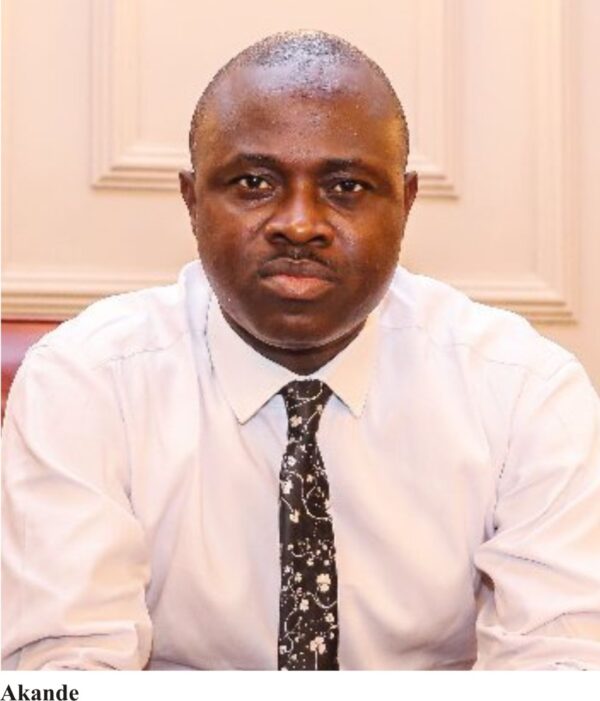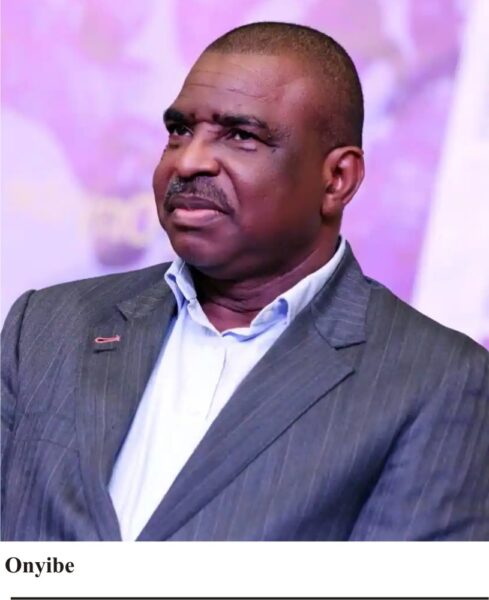Solution To Our Industry Problem is Not Fighting-Orakwusi

Bar. (Mrs.) Margaret Onyema Orakwusi, a onetime President of Trawler Owner Association (NITOA) is the Chairman of International Maritime Exhibition and Conference Limited (IMEC), which collaborated with Nigerian Shippers’ Council (NSC), to organise a one-day conference on port concession agreement review, recently.
In this chat, she talks on the need for reform in the maritime industry.
Excerpts:
How would you describe today’s event?
The event of today has been highly successful beyond our expectation, in terms of the caliber of people that attended. We are grateful to God. The National Assembly led by the Chief Whip and all the heads of associations in the maritime sector were here and contributed immensely. We made all the association presidents assistant moderators so that they can sum up the presentation and to me that is the success of today’s event because the event gave operators the opportunity to contribute and express their desires on what direction the industry will go and that speaks volumes.
Today, we reviewed the concession agreement and very useful contributions from the stakeholders and also from the presenter, Chief Adebayo Sarumi who moderated the event and he talked a lot about what the ports used to be since he was a onetime MD of Nigerian Ports Authority (NPA), and then he talked about his dream for the industry and how it can be actualized especially with modernized development of the ports and the venture of making our ports the hub for the rest of West Africa.
They discussed also about the gridlock, all proffered solution to the traffic situation in Apapa. One of the solutions proffered was to develop the railways system so that the idea of moving heavy goods with trucks will stop, again, they also discussed the various tank farms in Apapa, taking into consideration that Apapa is also a densely populated residential area , and there are a lot of business activities going on there, to combine that with the number of tankers we see coming from all over the country every day.
While it may be difficult to relocate the ports, I don’t think it will be that difficult to relocate the tank farms, the tank farms are owned by investors and this is where the government should come in, knowing the cost of relocation, and support the investors, they can actually write it off, because in the process we are saving our ports, we are also safeguarding people living in Apapa and Lagos as a whole.
All these tank farms are nothing but time bomb waiting to explode, should we wait for that to happen? So the government must also address the issue of relocating the tank farms, it should not be done 100% at the expense of the owners or operators of the farms.
Why?
Because they did not choose the location of their tank farms somebody gave them approval after an environmental assessment.
At that time we did not foresee danger in doing that as a government, we should be able to take responsibility for those tank farms that are there ,that is why I believe that the government should relocate the farms because relocating the residents of Apapa is not an option and should not be discussed because these people have been living there for decades but the farms are all recent business ventures so I think that the issue is that there should be political will and lives and properties must also be taken into consideration, the ports have been here long before the tank farms.
What do you see as the answer to gridlock in Apapa?
Rail transportation is also mass transit in most countries, our population is in excess of 160million and it is absurd that we are all driving on the roads, there must be a serious effort and deliberate attempt to make our rails work.
Heavy duty goods should be moved by train to all parts of the country and there should be a functional rail from the port straight to wherever cargos are to be delivered. That explains why when a part of the road is fixed, before the end of two rainy seasons, because of the heavy duty trucks that ply the road, everything goes bad like it was never fixed.
Another is ferries, investors should be encouraged to go into water transportation, we should be comfortable to leave the car at home and take the bus or pack the car somewhere and go by ferry.
This also is very effective in reducing the number of cars that ply our roads and then there is the buses, the buses should be comfortable, they should work because it is wrong that every Nigerian wants to own and drive a car even when they cannot afford it and yet no matter how big we are when we travel abroad we use the bus. Some cities in the world do not have buses as clean as the ones we have here but we all jump in. We need to cultivate the culture and the government must have the political power to do something positive in this direction.
Do you think that there is a need to review port concession agreement?
I think so, because the original intention was to modernize our port, that is one of the intention, another is to reduce the turnaround time, reduce cost of freight, the question now is, are we seeing all these today? The answer is no.
This is not taken away from what the terminal operators have done but the point is, are the other parties involved doing their own bit? That is why it was interesting listening to the review because the terminal operators are investors and all investors want good returns on investments and I think it will be to their favour if the terminals here can be like the ones abroad, in terms of modernization and reduced turn around period.
When all this things are in place, the cost of freight will come down and when we start having the big vessels come in their revenue will definitely increase, so looking at the concession agreement lets identify the obligations of the lessor and the lessee, who is failing and why. We need to have the full dividends of ports concession, also the private investors should be protected, so it goes hand in hand because we are all stakeholders, we should begin to do things the right way.
One of the successes of tonight is the presence of all the elders. I really commend all the elders that were at this conference because they are widely travelled and are people who have been in authority in the port and port development, their wealth of experience can never be underrated because a lot of us were able to tap into their wealth of experience.
Being in the fishing industry, why this partnership?
As the chairman of the company, International Maritime Exhibition and Conference Limited, this is my own personal contribution to the maritime industry which I am a part of because I believe that all hands should be on deck, the stakeholders know it and they have the experience, they know where it pitches, this platform is to provide the opportunity to bring them together. That is why it was done in conjunction with Nigerian Shippers’ Council (NSC).
So, this is my own contribution to the development of the industry.
After now, what next?
We do not intend to leave things the way they are, we are going to look at all the papers and contributions of today especially the one from our elders, then we put them together, of course they are aware that we have some bills pending in the National Assembly, and I thank God that the Speaker was represented by the Chief Whip.
I want everybody in the maritime industry to understand and know that if some of these bills are delayed they will also know that the job we intend to create from the maritime sector is also being delayed, other areas like banking, insurance, shipping are areas that will automatically grow if the right things are done and the right laws are put in place and we intend to achieve that because we are going to publish the result of what we have done today to the relevant authorities and to Nigerians in general
There are many bills in the National Assembly that have not been passed in the last session, what steps are stakeholders taking to make sure that these bills are passed.
This is one of the steps because for those that were here today it’s like, wow, especially the role played by the economic regulator and the need to have the transport bill passed and other pending bills.
Information is power and these legislators are coming from different backgrounds, some are medical doctors and other area that are not maritime, so it is important to throw the discussions of issues in maritime open so that everybody will understand and be willing to put the relevant laws in place.
Are you aware that there are some operators working against the passage of these bills, how can stakeholders stop them?
I am not too sure that operators are working against any bill because most of the terminal operators were represented here, I saw representatives from, Ports Terminal Multi-services Limited (PTML), Julius Berger Services, Warri, PTOL, Port Harcourt, (BUA) services, LADOL Service, Josepdam Services Limited even Greenview Nigeria Development Limited, they were here because this is business and as a nation almost all countries in the world have an economic regulator, it can never be business as usual.
Before now, NPA was the lawyer and the judge but now we have an independent body to regulate all that is happening in the ports, everybody’s interest is represented and if there are issues I think it is best if we sit and understand where the issues are coming from.
It is difficult to fight a government agency but it is easier to reason with them if there are situations that are very difficult, I don’t think the solution is in fighting because the industry belongs to all of us, so it is always good to sit, discuss and take the best solution that will move the industry forward.
I am not aware of stakeholders in the industry not wanting the bill to be passed but this is a democracy and anybody is entitled to agree or disagree but at the end of the day, the decisions that will move the industry forward and provide jobs for our children and growth in the industry that will make us a hub in West Africa is what is desired.
A lot of goods are diverted to neighboring countries and it is amazing because some of these countries are not even as big as Lagos state and their main source of revenue is our own losses because when we are not doing well and we divert cargo to them we loss the revenue and the employment and they take what we have lost.
A typical example is my industry, Nigerian Trawlers Owners Association(NITOA), because of the frequency in piracy attacks most of us do not operate in Nigeria and when we stopped, a lot of our Nigerian workers became redundant, when we go to these African countries to operate it’s not like here in Nigeria, everything is monitored, you pay for the license, their conditions includes that you cannot take away everything that you get from the sea, you have to discharge and sell some in their environment, you have to employ their people and these are all as a result of a failure in policy and lack of security in our country. So we lose a lot.
The drive should be what is in the best interest of Nigeria, and this should be well and above my interest and everybody’s interest because over 60% of our population is the youth, what plans do we have to provide for them in the area of jobs and welfare. These are the issues and this industry if properly managed will be able to grow all other sector of our economy.






